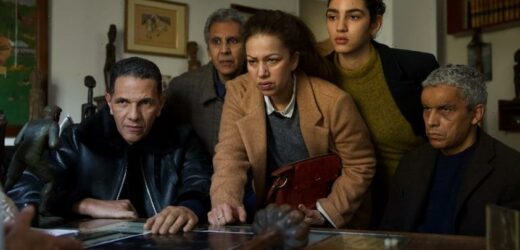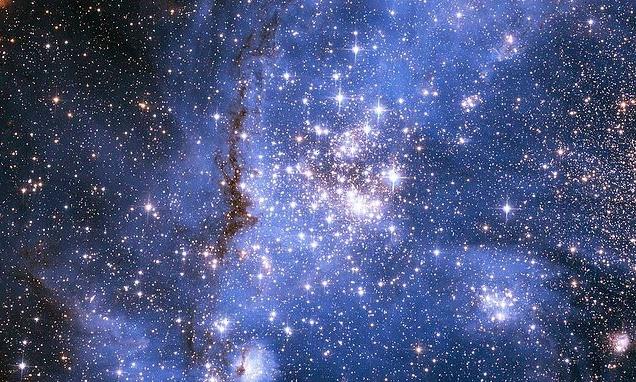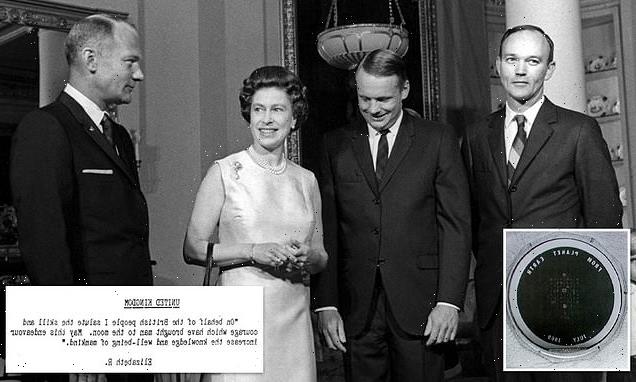Of all the immediate familial relationships agonized over in the movies, it’s probably the bonds of siblinghood that remain the least explored. In his sixth film as director, French multihyphenate Roschdy Zem redresses that imbalance just a little, with the charming, unassuming but hardly inconsequential “Our Ties”: a heartfelt and beautifully played burst of bright chatter that doesn’t reinvent the wheel of the domestic drama, but does watch it turn with an unusually compassionate, affectionate eye.
As it opens, Moussa (Sami Bouajila, winner of the 2019 Venice Horizons Best Actor award for Mehdi Barsaoui’s “A Son”) is in the middle of a crisis, not that you’d necessarily know it from the gently perplexed way he is handling his wife Nora’s sudden decision to end their relationship. Nora is in Morocco, where she spends a lot of her time for work, and Moussa, getting nothing but her voicemail, has finally come to the realization that she is serious about their split. Less angry than he is dazed, according to her wishes he packs up all her things, but is helpless to know what to do with them. His concerned, no-nonsense sister Samia (a note-perfect Meriem Serbah), the only one in whom he’s confided about the breakup, takes charge of giving the clothes and jewelry away.
He may be suffering emotional turmoil, but it’s his youngest daughter’s 12th birthday, and a raucously multigenerational family gathering is planned in celebation. So while his older children Nesrine (Nina Zem) and Amir (Carl Malapa) squabble over Amir’s loony flat-earth beliefs, Moussa, sitting in between the outspoken Samia and their successful TV presenter brother Ryad (Zem), with his elder brothers Adil (Abel Jafri) and Salah (Rachid Bouchareb) plus various spouses in attendance, selflessly slips into his regular role as quiet, reliably good-humored mediator.
With an accurate and amused ear for the conversational dynamics of squabbling relatives, the screenplay, co-written by Zem and Maïwenn and based on an incident in Zem’s brother’s life, cleverly delivers a welter of information about every member of this sprawling clan via an escalating discussion that pivots on whether Ryad ever thanked Moussa for some pastries. Ryad, already bristling at the accusation that he is not attentive to his family or to his girlfriend Emma (Maïwenn), insists that such politenesses are unnecessary between brothers. Samia, rankling on Moussa’s behalf, doubles down on her accusation of Ryad’s callousness. Just when things threaten to erupt, Moussa gently defuses the time bomb of stored-up petty resentments that every family sets ticking whenever they get together.
So when Moussa, lonely after his secret split, goes out drinking with an attractive co-worker, gets pukingly drunk and keels over, we know it’s atypical behavior. And when the concussion he sustains turns out to be more serious, and he starts sleeping through the day and snapping at his kids, the circles under his eyes darkening like some kind of light is being slowly extinguished from within, we understand the hovering existential threat his newfound sullenness poses to the fragile equilibrium of this flawed yet amusing bunch of people. We’ve known Moussa less than half an hour and we already miss him; imagine how it must be for those who’ve known him forever.
Composer Maxence Dussere matches DP Julien Poupard’s warm-toned, unobtrusively intimate camerawork with a score that remains sympathetic without ever simpering. But the coups de grace of “Our Ties” happened at casting stage: It’s funny how quickly we believe in Zem as the high-profile host of a soccer show, in Maïwenn as his tawny, take-no-crap actress girlfriend, in Serbah as that exact older sister whose good-natured but impatient efficiency often comes over as bossiness or overstepping, and especially in Bouajila, as the brother whose solicitous, soft-spoken decency no one ever really took notice of, until it was gone.
Much in “Our Ties,” like in life, remains unresolved right up to the glib but undeniably uplifting finale. Dangling questions like where Moussa’s computer went to, and why the bruise appeared on the front of his head when he banged the back of it, tease some last-minute revelation that never actually comes. Similarly, Nora’s cruelly abrupt exit from Moussa’s life is never accounted for, indeed our only subsequent glimpse of her — and Moussa’s — comes during an impersonal Skype call, as a formality for an off-the-shelf divorce. This is the way modern heartbreak occurs, not with a bang but with a video call, and the brisk exchange of two-factor authentication codes. Even the eventual change in his condition, which occurs on a trip to Normandy with Ryad (once Moussa has alienated all the others with his unpleasantness), doesn’t happen all at once, and not because of anything anyone does or says. Sometimes sick people get worse. Sometimes they get better. Life doesn’t come with an omniscient narrator who can give us simple reasons for either.
It would be easy to overstate the pleasures of this modest number, and it would be a shame. It is not the dazzling acquaintance who will topple a civilization or solve Fermat’s last theorem, but the friend who refills your ice cube trays and minds the cat when you’re away. In that way, it’s a lot like Moussa, the kind of heroically ordinary good guy who seldom gets movies made about him, more seldom still ones in which his North African ethnicity is no factor at all in the drama. “Our Ties” directed and played with such evident love that it’s hard to believe these people are not an actual family, says a playful prayer of gratitude for anyone who plays the role of peacemaker, for those who don’t seek and therefore don’t receive the most attention or the most praise, but without whom everything flies apart. It’s a little love letter to the lynchpins.
Read More About:
Source: Read Full Article


